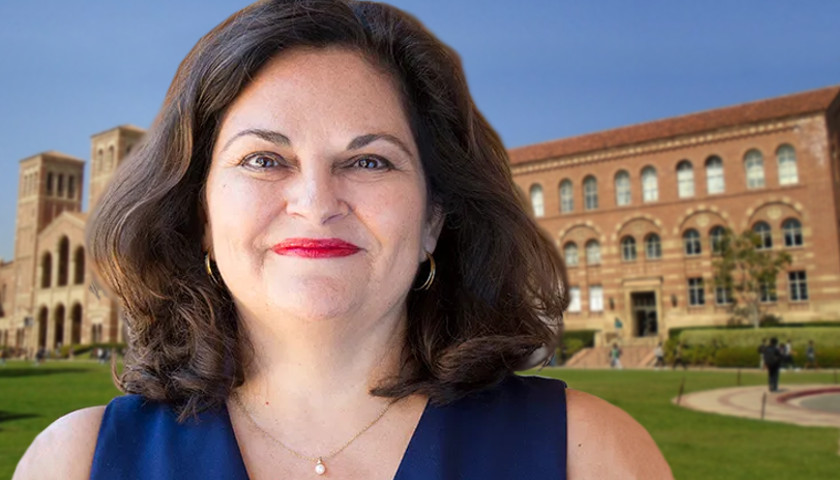Since op is too lazy to post the article:
 MENU
UCLA Professor Laura Gomez: Give Reparations to Latinos, Too
November 16, 2020 Admin
MENU
UCLA Professor Laura Gomez: Give Reparations to Latinos, Too
November 16, 2020 Admin
 by Matthew Keyes
by Matthew Keyes
A book titled,
Inventing Latinos: A New Story of American Racism, written by University of California Los Angeles School of Law professor,
Laura Gomez, is advocating for the United States to provide reparations for the Latino community.
According to Gomez’s
website, the main theme of the book, as described from an excerpt from the introduction, is “the how and why of Latinx identity becoming a distinctive racial identity.” Furthermore, it says, “this book explains how and why Latinos became cognizable as a racial group— a racial group that is Other and inferior to Whites.”
In an
interview with UCLA, Gomez was asked several questions about the book.
In response to one of the questions, Gomez advocates for reparations for Latinos.
“Thankfully, we’re talking a lot more about reparations to African Americans. I think that’s a long-overdue conversation. How do we repair the damage that racism has done?” she said, adding that “because of the way that American military, government, and corporations infiltrated Central America and destroyed the indigenous way of life, and slaughtered so many people,” “people in Central America should get asylum here, like we had asylum for the Vietnamese, for Cubans. We must allow those folks in.”
Gomez stated that another way to provide reparations would be to provide amnesty to illegal immigrants living in the United States.
“Another is amnesty, a pathway to citizenship for undocumented persons who are here, have not committed violent crimes, and can prove that they’ve been here for a certain amount of time,” she said. “Again, we’re looking at a different story of anti-Latino racism. And so what does that suggest in terms of what we might do as a society to make amends, repair the relationship, and bring people into the fold as full-fledged Americans.”
Professors from around the country have commented on the book.
Brigham Young University professor
James-David Gonzalez wrote that “Gómez also reveals the nefarious roles the United States has played in Latin America – from military interventions and economic exploitation to political interference – that, taken together, have destabilized national economies to send migrants northward over the course of more than a century.”
“It’s no coincidence that the vast majority of Latinos migrate from the places most impacted by this nation’s dirty deeds, leading Gómez to a bold call for reparations,” he added.
UC-Berkeley law professor
Ian Haney Lopez said that “Laura Gómez puts racism, colonialism, white dominance, and community resistance exactly where they should be: at the heart of the conversations about Latinos today, and the nature of race in the United States tomorrow,” according to Gomez’s website.
UCLA student Brooke Newman spoke with
Campus Reform regarding Gomez’s book, saying, “I think it’s definitely an interesting take on the subject,” but adding that “I don’t really think a lot of people usually think about reparations for Latinos because generally, it focuses on the African-American community so this is a new perspective for me and probably a lot of other people too.”
“I also think this book will probably give people a new idea about reparations and what that could look like if it were to ever happen. I guess reparations doesn’t always just have to be giving money to communities but it could be something that addresses a particular issue instead like, in this case, amnesty and asylum.”
Campus Reform reached out to Gomez but did not receive a response in time for publication.
I'm tired of these Hispanics/Latinos, these are some of the laziest motherfukkers. fukking leeches








fukk her

